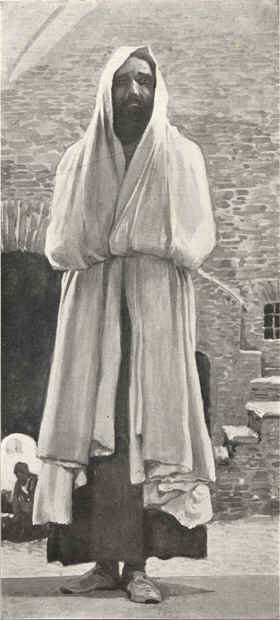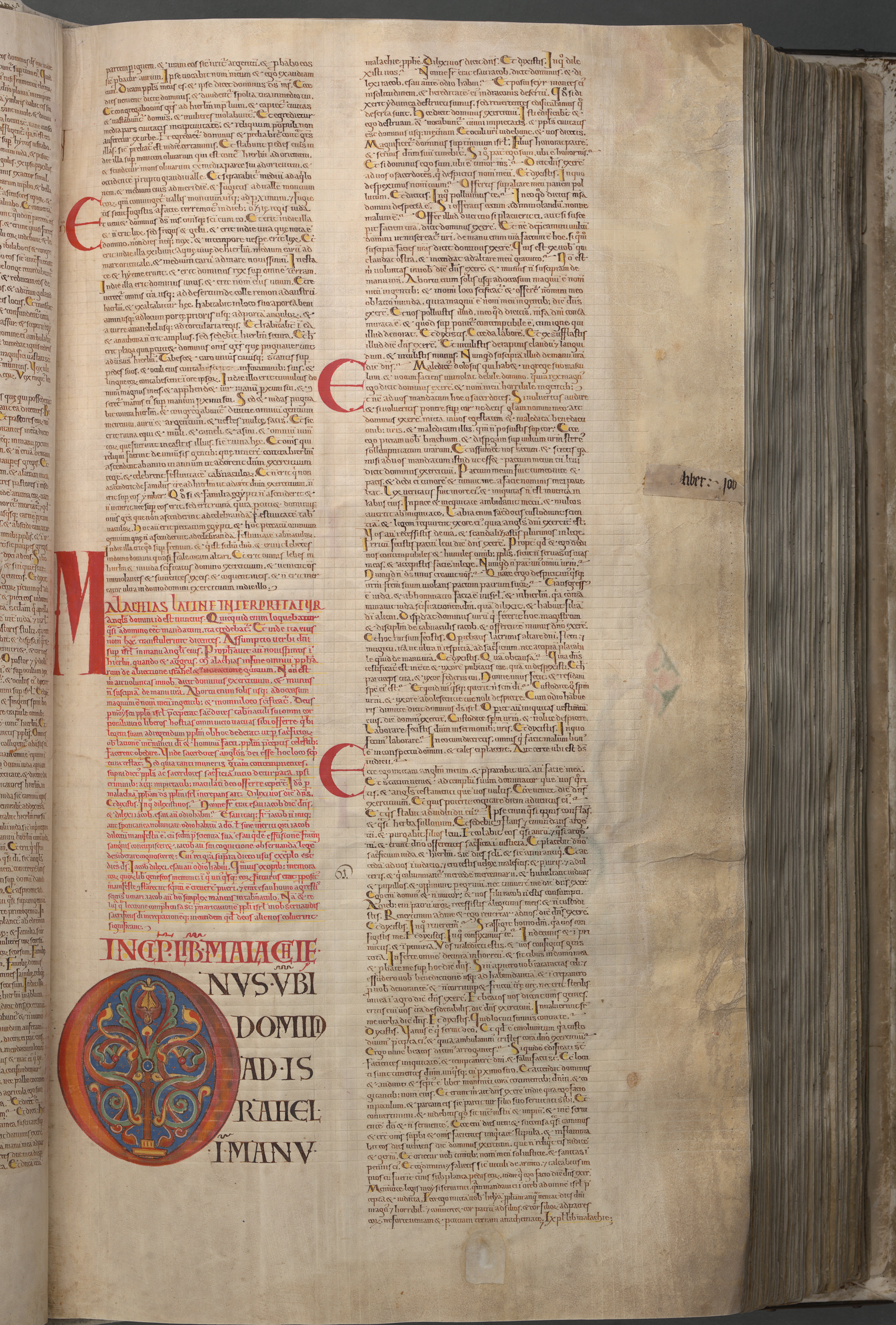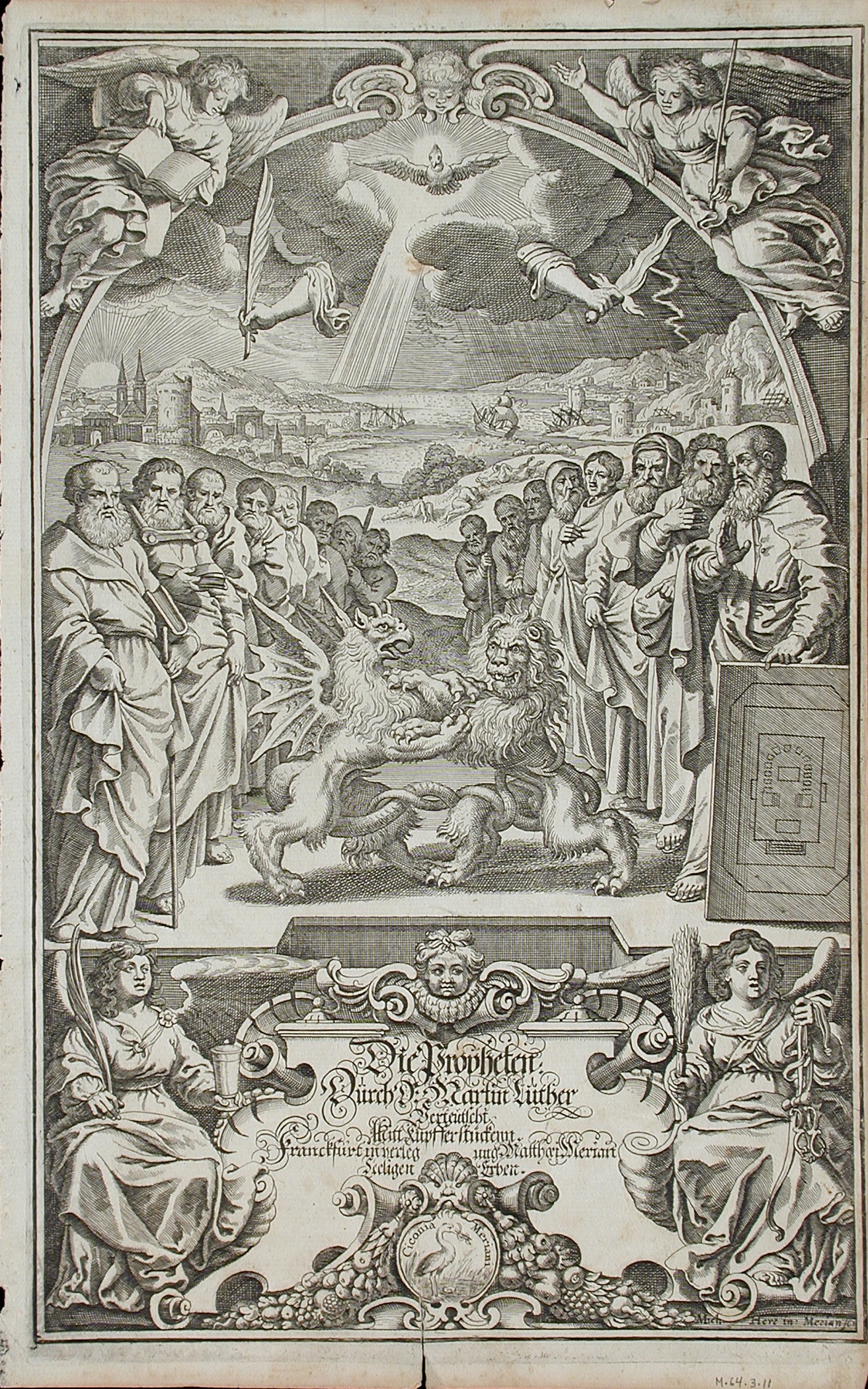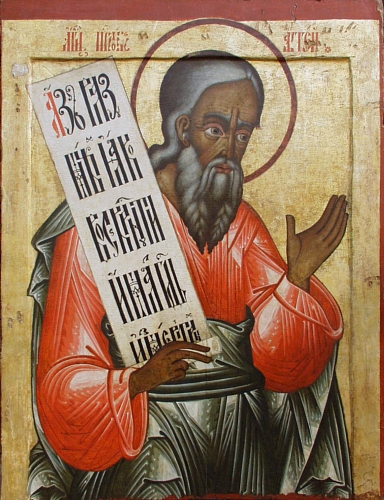|
Malachi
Malachi or Malachias (; ) is the name used by the author of the Book of Malachi, the last book of the Nevi'im (Prophets) section of the Hebrew Bible, Tanakh. It is possible that ''Malachi'' is not a proper name, because it means "messenger"; it has been assumed to be a pseudonym. According to Jewish tradition, the real identity of Malachi is Ezra the scribe. Some scholars argue that the Book of Malachi is the result of multiple stages of redaction; most of its text originated in the Persian period, with the oldest stratum from around 500 BCE and redactions into the Hellenistic period. Identity The editors of the 1906 ''Jewish Encyclopedia'' implied that Malachi, also known as Malachias, prophesied after Haggai and Zechariah and speculated that he delivered his prophecies about 420 BC, after the second return of Nehemiah from Persia, or possibly before his return. The Talmud and the Aramaic Targum of Jonathan ben Uzziel, Yonathan ben Uzziel identify Ezra as the same person as ... [...More Info...] [...Related Items...] OR: [Wikipedia] [Google] [Baidu] |
Book Of Malachi
The Book of Malachi () is the last book of the Nevi'im in the Tanakh and canonically the final book of the Twelve Minor Prophets. In most Christian traditions, the prophetic books form the last section of the Old Testament, making Malachi the last book before the New Testament. The book has four chapters. The author of Malachi may or may not have been identified by the title itself. While often understood as a proper name, its Hebrew language, Hebrew meaning is simply "my messenger" (the Septuagint translates it as "his messenger"). It was not a proper name at the time of its writing. Jewish tradition states that the book was written by the Scribe Ezra. Most scholars believe the book underwent multiple stages of redaction. The majority of its text originates in the Persian period; the oldest portions dating to . Later modifications occurred into the Hellenistic period. Oldest surviving manuscripts The oldest surviving Biblical Hebrew, Hebrew manuscripts, containing some or all ... [...More Info...] [...Related Items...] OR: [Wikipedia] [Google] [Baidu] |
Malachi
Malachi or Malachias (; ) is the name used by the author of the Book of Malachi, the last book of the Nevi'im (Prophets) section of the Hebrew Bible, Tanakh. It is possible that ''Malachi'' is not a proper name, because it means "messenger"; it has been assumed to be a pseudonym. According to Jewish tradition, the real identity of Malachi is Ezra the scribe. Some scholars argue that the Book of Malachi is the result of multiple stages of redaction; most of its text originated in the Persian period, with the oldest stratum from around 500 BCE and redactions into the Hellenistic period. Identity The editors of the 1906 ''Jewish Encyclopedia'' implied that Malachi, also known as Malachias, prophesied after Haggai and Zechariah and speculated that he delivered his prophecies about 420 BC, after the second return of Nehemiah from Persia, or possibly before his return. The Talmud and the Aramaic Targum of Jonathan ben Uzziel, Yonathan ben Uzziel identify Ezra as the same person as ... [...More Info...] [...Related Items...] OR: [Wikipedia] [Google] [Baidu] |
Tomb Of The Prophets
The Tomb of the Prophets Haggai, Zechariah and Malachi (} ; "Cave of the Prophets") is an ancient burial site located on the upper western slope of the Mount of Olives, Jerusalem. According to a medieval Jewish tradition also adopted by Christians, the catacomb is believed to be the burial place of Haggai, Zechariah and Malachi, the last three Hebrew Bible prophets who are believed to have lived during the 6th–5th centuries BC. Archaeologists have dated the three earliest burial chambers to the first century BC, thus contradicting the tradition. Burial chamber The chamber forms two concentric passages containing 38 burial niches. The entrance to the large rock-cut burial cave is on the western side, where a staircase descends, flanked on both sides by a stone balustrade. It leads into a large circular central vault measuring in diameter. From it, two parallel tunnels, wide and high, stretch some through the rock. A third tunnel runs in another direction. They are all con ... [...More Info...] [...Related Items...] OR: [Wikipedia] [Google] [Baidu] |
Ezra The Scribe
Ezra (fl. fifth or fourth century BCE) is the main character of the Book of Ezra. According to the Hebrew Bible, he was an important Jewish scribe (''sofer'') and priest (''kohen'') in the early Second Temple period. In the Greek Septuagint, the name is rendered as ' (), from which the Latin name Esdras comes. His name is probably a shortened Aramaic translation of the Hebrew name ('), meaning " Yah helps". In the Hebrew Bible, or the Christian Old Testament, Ezra is an important figure in the books of Ezra and Nehemiah, which he is traditionally held to have written and edited, respectively. According to tradition, Ezra was also the author of the Books of Chronicles and the Book of Malachi. He is depicted as instrumental in restoring the Jewish scriptures and religion to the people after the return from the Babylonian Captivity and is a highly respected figure in Judaism. He is regarded as a saint in the Roman Catholic Church, which sets his feast day as July 13, the same as th ... [...More Info...] [...Related Items...] OR: [Wikipedia] [Google] [Baidu] |
Chabad
Chabad, also known as Lubavitch, Habad and Chabad-Lubavitch (; ; ), is a dynasty in Hasidic Judaism. Belonging to the Haredi (ultra-Orthodox) branch of Orthodox Judaism, it is one of the world's best-known Hasidic movements, as well as one of the largest Jewish religious organizations. Unlike most Haredi groups, which are self-segregating, Chabad mainly operates in the wider world and caters to nonobservant Jews. Founded in 1775 by Rabbi Shneur Zalman of Liadi (1745–1812) in the city of Liozno in the Russian Empire, the name "Chabad" () is an acronym formed from the three Hebrew words— Chokmah, Binah, Da'at— for the first three sefirot of the kabbalistic Tree of Life after Keter: , "Wisdom, Understanding, and Knowledge"—which represent the intellectual and kabbalistic underpinnings of the movement. The name Lubavitch derives from the town in which the now-dominant line of leaders resided from 1813 to 1915. Other, non-Lubavitch scions of Chabad either disappear ... [...More Info...] [...Related Items...] OR: [Wikipedia] [Google] [Baidu] |
Nevi'im
The (; ) is the second major division of the Hebrew Bible (the ''Tanakh''), lying between the () and (). The Nevi'im are divided into two groups. The Former Prophets ( ) consists of the narrative books of Joshua, Judges, Samuel and Kings; while the Latter Prophets ( ) include the books of Isaiah, Jeremiah, Ezekiel, and the Twelve Minor Prophets. Synopsis The Jewish tradition counts eight books in ''Nevi'im'' out of twenty-four books in the Hebrew Bible. There are four books of the Former Prophets, including Joshua and Judges, and the collected ''Books of Samuel'' and ''Books of Kings'' are each counted as one book. Among the four books of the Latter Prophets, Isaiah, Jeremiah, and Ezekiel account for three books, followed by the "Twelve" (: Hosea, Joel, Amos, Obadiah, Jonah, Micah, Nahum, Habakkuk, Zephaniah, Haggai, Zechariah, and Malachi), which is counted as a single book. The development of the Hebrew Bible canon placed the Book of Daniel as part of the "Writi ... [...More Info...] [...Related Items...] OR: [Wikipedia] [Google] [Baidu] |
Great Assembly
According to Jewish tradition the Great Assembly (, also translated as Great Synagogue or ''Synod'') was an assembly of possibly 120 scribes, sages, and prophets, which existed from the early Second Temple period (around 516 BCE) to the early Hellenistic period (which began in the region with Alexander's conquest in 332 BCE), roughly coinciding with the Persian hegemony over the nation of Israel. The assembly's members, known as ''Anshei Knesset HaGedolah'' (, the "Men of the Great Assembly"), traditionally included such figures as Haggai, Zechariah, Malachi, Ezra, Nehemiah, Daniel, Hananiah, Mishael, Azariah, Mordechai and Zerubbabel. Among the developments in Judaism that are attributed to the sages of this period are the fixing of the Jewish biblical canon (including the Book of Ezekiel, Daniel, Esther, and the Twelve Minor Prophets); the introduction of the Feast of Purim; and the institution of many prayers and rituals including the Amidah prayer. Membership Role o ... [...More Info...] [...Related Items...] OR: [Wikipedia] [Google] [Baidu] |
Prophets In Judaism
According to the Talmud, there were 48 prophets and 7 prophetesses of Judaism ( ''Nəvīʾīm'', Tiberian: ''Năḇīʾīm,'' "Prophets", literally "spokespersons"). The last Jewish prophet is believed to have been Malachi. In Jewish tradition it is believed that the period of prophecy, called '' Nevuah'', ended with Haggai, Zechariah and Malachi (mid-5th century BCE) at which time the " Shechinah departed from Israel". Rabbinic tradition According to the Talmud, there were 48 prophets and 7 prophetesses who prophesied to Israel. The 46 prophets to Israel (46 according to Rashi, commentary on Tractate Megillah 14a) * Abraham * Isaac * Jacob * Moses * Aaron * Joshua * Phinehas * Eli * Elkanah * Samuel * Gad * Natan * David * Ahijah the Shilonite * Solomon * Iddo * Obadiah * Jehu * Azariah * Jahaziel * Eliezer * Elijah * Elisha * Micaiah * Jonah * Amos * Hosea * Amoz * Isaiah * Micah * Joel * Zephaniah * Nahum * Habakkuk * Urijah * Jeremiah * E ... [...More Info...] [...Related Items...] OR: [Wikipedia] [Google] [Baidu] |
Talmud
The Talmud (; ) is the central text of Rabbinic Judaism and the primary source of Jewish religious law (''halakha'') and Jewish theology. Until the advent of Haskalah#Effects, modernity, in nearly all Jewish communities, the Talmud was the centerpiece of Jewish culture, Jewish cultural life and was foundational to "all Jewish thought and aspirations", serving also as "the guide for the daily life" of Jews. The Talmud includes the teachings and opinions of thousands of rabbis on a variety of subjects, including halakha, Jewish ethics, Jewish philosophy, philosophy, Jewish customs, customs, Jewish history, history, and Jewish folklore, folklore, and many other topics. The Talmud is a commentary on the Mishnah. This text is made up of 63 Masekhet, tractates, each covering one subject area. The language of the Talmud is Jewish Babylonian Aramaic. Talmudic tradition emerged and was compiled between the destruction of the Second Temple in 70 CE and the Arab conquest in the early seve ... [...More Info...] [...Related Items...] OR: [Wikipedia] [Google] [Baidu] |
Hebrew Bible
The Hebrew Bible or Tanakh (;"Tanach" . '' Random House Webster's Unabridged Dictionary''. ; ; or ), also known in Hebrew as (; ), is the canonical collection of scriptures, comprising the Torah (the five Books of Moses), the Nevi'im (the Books of the Prophets), and the [...More Info...] [...Related Items...] OR: [Wikipedia] [Google] [Baidu] |
Haggai
Haggai or Aggeus (; – ''Ḥaggay''; ; Koine Greek: Ἀγγαῖος; ) was a Hebrew prophet active during the building of the Second Temple in Jerusalem, one of the twelve minor prophets in the Hebrew Bible, and the author or subject of the Book of Haggai. He is known for his prophecy in 520 BCE, commanding the Jews to rebuild the Temple. He was the first of three post-exilic prophets from the Neo-Babylonian Exile of the House of Judah (with Zechariah, his contemporary, and Malachi, who lived about one hundred years later), who belonged to the period of Jewish history which began after the return from captivity in Babylon. His name means "my holidays". Life Scarcely anything is known of his personal history, with the book of Haggai offering no biographical details about his ancestry or anything else in his life outside the prophecies of 520 BCE. Haggai is only mentioned in one other book of the Bible, the book of Ezra. He may have been one of the captives taken ... [...More Info...] [...Related Items...] OR: [Wikipedia] [Google] [Baidu] |







